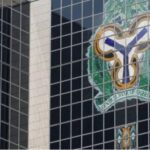
Nigeria, the largest economy in Africa, is grappling with a sharp increase in inflation, as the value of the naira continues to decline against major global currencies. The latest data from the National Bureau of Statistics (NBS) reveals that the country’s inflation rate has reached an alarming 29.90% in January 2024, marking the thirteenth consecutive month of rising inflation and setting a new record for the nation.
Food inflation, which significantly contributes to the overall inflation rate, soared to 35.41% in January, up from 33.93% in December. This rise in food prices is being driven by escalating costs of essential goods, including potatoes, yam, cereals, fish, meat, and vegetables, making basic food items increasingly unaffordable for many Nigerians.
The NBS report highlighted that the January 2024 inflation rate was 0.98 percentage points higher than the December 2023 rate, which stood at 28.92%. When compared to January 2023, the current inflation rate is 8.08 percentage points higher than the previous year’s rate of 21.82%. This indicates a significant year-on-year increase in the cost of goods and services in the country.
In addition to the food sector, core inflation, which excludes volatile food and energy prices, also saw a notable increase, rising to 23.59% in January 2024, compared to 18.88% during the same period in the previous year. This suggests that inflationary pressures are widespread, affecting both essential goods and other sectors of the economy.
The impacts of this inflation are being felt nationwide, with urban areas experiencing a 31.95% inflation rate and rural areas facing a 28.10% increase, both on a year-on-year basis. These sharp price hikes are putting immense pressure on households, prompting protests in various states as citizens voice their frustrations over the rising cost of living.
In response to these economic challenges, President Bola Tinubu has ordered the release of government-owned grains to help mitigate the soaring food prices. Additionally, discussions are ongoing among stakeholders to address the economic strain caused by the removal of fuel subsidies and ongoing security concerns in certain parts of the country.
Despite these challenging circumstances, the Central Bank of Nigeria (CBN) has expressed cautious optimism that inflationary pressures may ease in 2024. The CBN is hopeful that its inflation-targeting policies, combined with expected improvements in agricultural output, will help bring inflation under control in the coming months.


